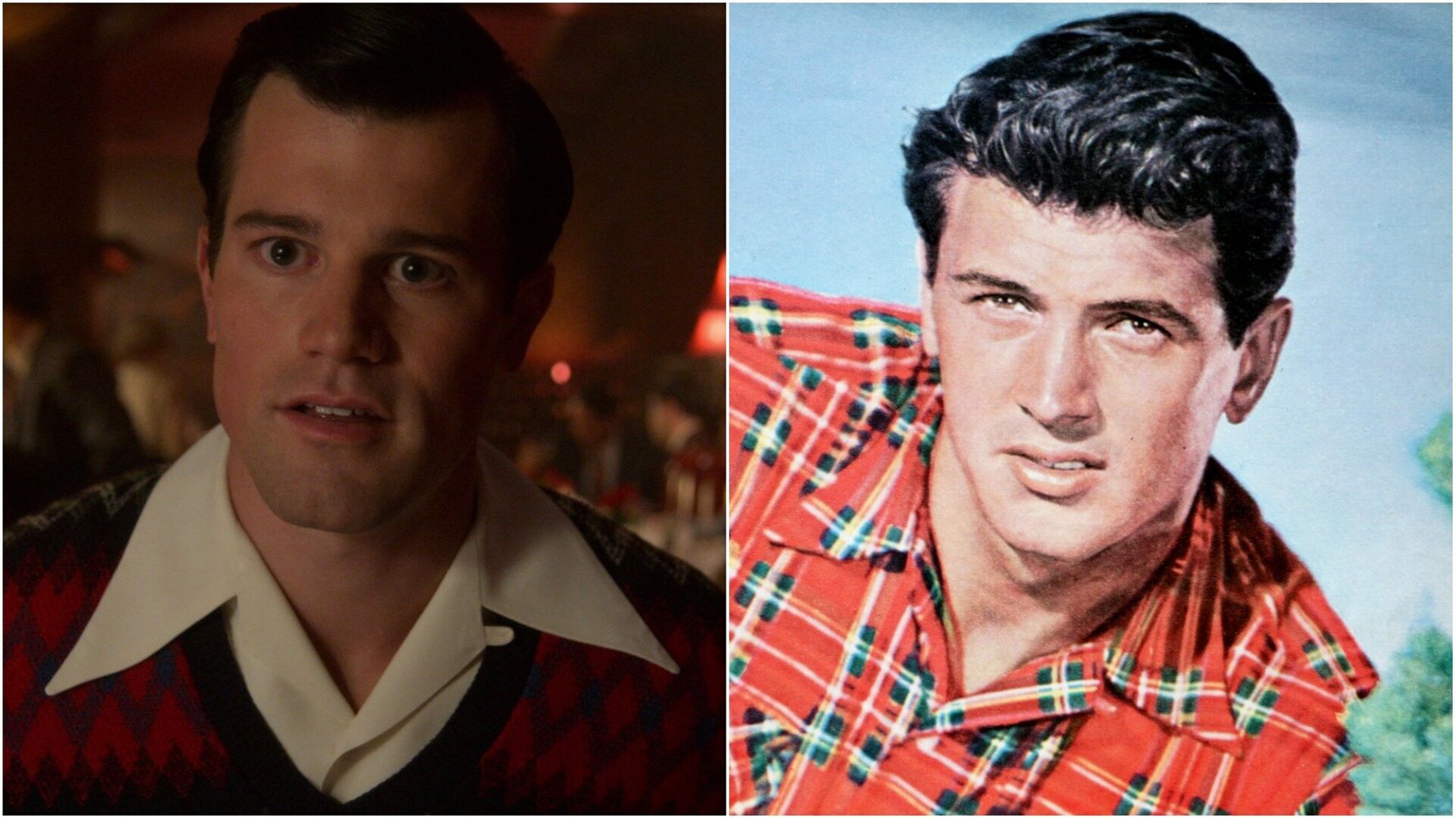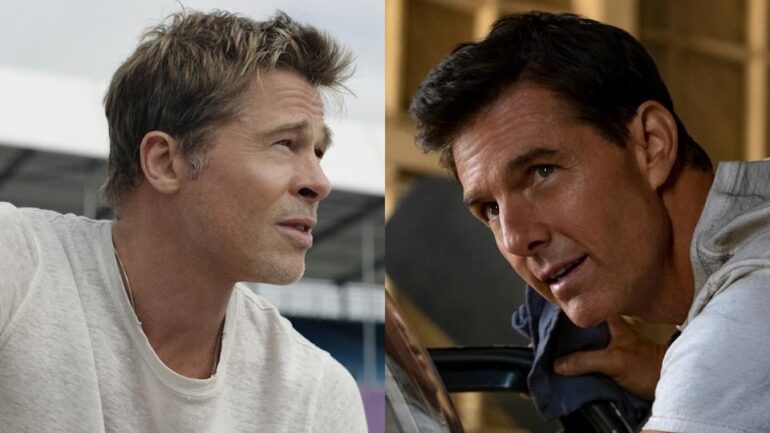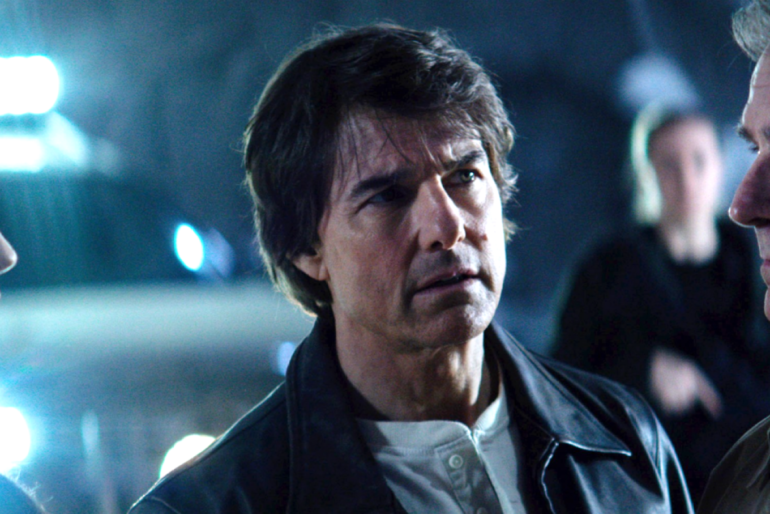So good... like you
Listeners:
Top listeners:
00:00
00:00
chevron_left
-
play_arrow
NGradio So good... like you
As Rock Hudson in ‘Hollywood,’ Jake Picking renders the man behind the marquee

In the premiere episode of Ryan Murphy’s “Hollywood,” an aspiring actor named Roy Fitzgerald (played by Jake Picking) visits a gas station-turned-brothel called the Golden Tip in search of male companionship. Attempting to meet other gay men elsewhere, he explains to viewers, is to risk being outed and thus blacklisted by the studio system.
Over the course of the next six episodes, Fitzgerald changes his name to Rock Hudson and lands a debut part in a movie ― all while being verbally and sexually abused by a Svengali-like manager, Henry Willson (Jim Parsons). By the season finale, Hudson finds the courage to denounce Willson’s exploits, go public about his sexuality and attend the 1947 Academy Awards on the arm of a screenwriter boyfriend, Archie Coleman (Jeremy Pope).
“Hollywood,” which debuted on Netflix last week, presents an alternate history of cinema’s golden age. The limited series follows an ensemble of artists and industry moguls, including a director (Darren Criss) and the wife of a studio executive (Patti LuPone), pushing for on-screen diversity. Along the way, the film also reimagines the career trajectories of several legendary stars, including Hudson, Anna May Wong and Hattie McDaniel.
“The show really comments on the abuse of power,” Picking told HuffPost. “I think that’s always going to be relevant, not just within the entertainment industry.”

The real-life Hudson, Wong and McDaniel experienced homophobia, racism and sexism as they fought to make a name for themselves in the arts. “Hollywood” suggests their authentic lives might have been received differently if such barriers, which are still facing marginalized groups today, had been shattered some 70-plus years ago through cultural milestones.
And in reality, Hudson’s talents were, at first, dubious at best ― which “Hollywood” alludes to by showing him fumble his way through a screen test. The “casting couch” misconduct he endured from Willson, who would remain his agent until 1966, is also well-documented. By the late 1950s, however, Hudson was one of Hollywood’s most bankable leading men, starring in films such as “Magnificent Obsession” and “Giant,” for which he scored an Oscar nomination.
The Illinois native’s sexuality was said to be an open secret ― so much so that Willson hastily arranged for him to marry a talent agency secretary, Phyllis Gates, in 1955 to ward off media speculation about his private life. The couple divorced three years later.
Hudson continued to act regularly through the 1970s and ’80s, and he never actually addressed his sexuality publicly — unlike in the show. He died in 1985 at age 59 of an AIDS-related illness.

“To me, Rock was a hero because he was resilient, but the tragedy is the fact he had to hold onto a painful secret,” Picking said. “Any signs of his quote-unquote ‘effeminacy’ were eradicated. His wrists were slapped, his hips were straightened, his teeth were fixed.”
“To judge anyone in that way is just toxic and close-minded,” he added.
An admirer of Hollywood greats like James Dean and Marlon Brando, Picking prepared to play Hudson by reading Mark Griffin’s biography of the actor, “All That Heaven Allows,” as well as “The Man Who Invented Rock Hudson: The Pretty Boys and Dirty Deals of Henry Willson,” to get a better grasp of the role the real-life Willson played. He also watched many of Hudson’s films on silent to be able to effectively mimic the actor’s body language.
Picking, who relocated to Los Angeles from the East Coast before his first on-screen role in 2013’s “The Way, Way Back,” said he related to “the feeling of loneliness” Hudson experienced during his early years in Hollywood.

“He was an airplane mechanic in World War II and came here and was driving a packing truck of frozen peas and carrots and, you know, hoping to bump into someone influential,” Picking said. “I definitely could relate to that, coming from the East Coast. I usually associate seasonal changes with what’s going on. So when I moved here, I had existential angst because every day felt the same.”
“Hollywood” looks poised to be a breakout moment for Picking, who previously had supporting roles in “Dirty Grandpa” and “Blockers.” He’ll hit the big screen later this year in “Top Gun: Maverick,” alongside Tom Cruise.

The intentional revisionism presented in “Hollywood” has, thus far, largely divided critics. For his part, Picking said the show’s melding of fact and fiction conveys a hopeful message of “triumph” and “empathy,” which he’d like to carry forth into a second season.
“The thing to take away is that you can be who you are and be proud of that,” he said. “My hope is that Rock would root for that sentiment.”
Source: huffpost.com
Written by: New Generation Radio
Similar posts
ΔΗΜΟΦΙΛΗ ΑΡΘΡΑ
COPYRIGHT 2020. NGRADIO




















Post comments (0)